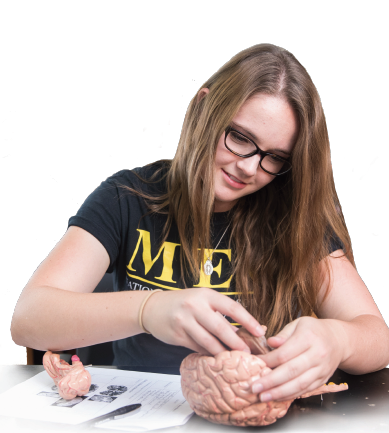What if cognitive abilities could be enhanced by a plant-derived nutritional supplement?
That is the question Northern Arizona University researchers O’neil Guthrie, Marques Jackson and student researcher Li Yang are asking in a new study that investigates boosting cognitive functions.
The study, which is looking for participants aged 18-65, will take a dietary supplement for 30 days and take a placebo supplement for 30 days with a rest period of 30 days in between. Virtual cognitive testing will be performed before, during and after supplement/placebo intake. The cognitive testing includes measuring attention, memory, executive function and emotional and social cognition.
“If a dietary supplement is able to improve cognitive functions, then individuals will have the benefit of improving cognitive performance when needed,” said Guthrie, the principal investigator and associate professor in the department of Communication Sciences and Disorder. “Patients who have cognitive deficits or individuals who simply need a cognitive boost in preparation for a challenging task can utilize this supplement instead of using pharmaceuticals, which are unnatural and yield some degree of side effects.”
The use of a natural nutritional supplement would be a safer, less expensive and a more widely accepted means of achieving a cognitive boost.
The researchers took this approach because studies have shown that dietary supplements show improved systemic immune functions and increase the bioavailability of aromatic amino acids—important for protein production—but the role of improved cognitive functions is unresolved. This study will contribute to that discourse.
Guthrie has been studying the effects of using natural supplements to address hard-to-solve problems. In one study, they have shown for the first time that a natural supplement could increase DNA repair capacity resulting in protection from hearing loss.
All aspects of the study will occur virtually.
Eligibility requirements:
- Must not be pregnant, breastfeeding or have a health problem
- Must not be a daily coffee or tea drinker
- Must not currently suffer with any neurologic, psychologic or psychiatric conditions
- Must have a computer with access to the Internet
- Must have manual dexterity necessary to use a computer
If you are interested in participating in the study, email Cmplab15@gmail.com or call (928) 523-1041 to see if you qualify.



